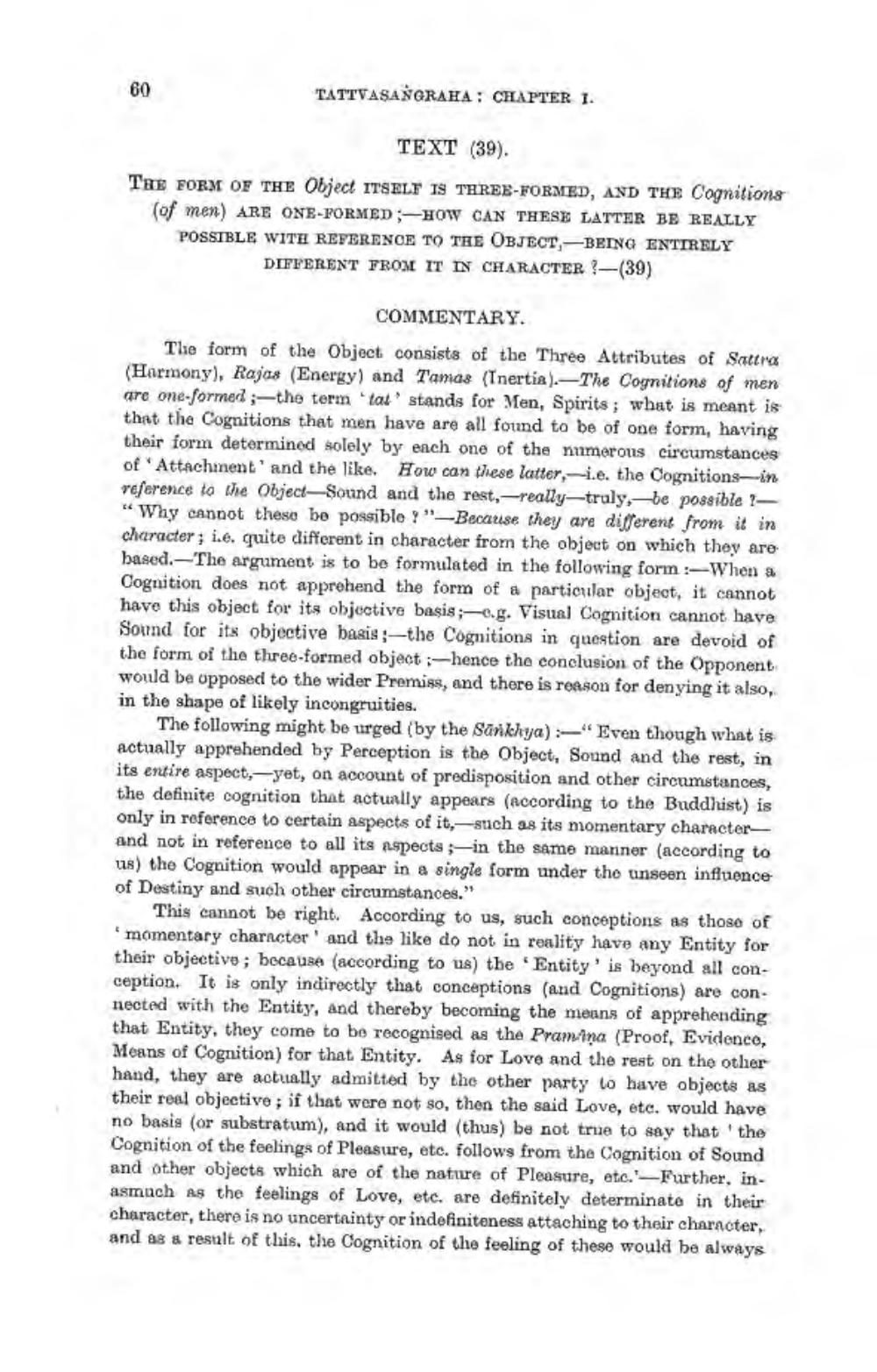________________
60
TATTVASANGRAHA : CHAPTER I.
TEXT (39)
THE FORM OF THE Object ITSELF IS THREE-FORMED, AND THE Cognitions (of men) ARE ONE-FORMED ;-HOW CAN THESE LATTER BE REALLY POSSIBLE WITH REFERENCE TO THE OBJECT.-BEING ENTIRELY
DIFFERENT FROM IT IN CHARACTER 1-(39)
COMMENTARY. The form of the Object consists of the Three Attributes of Sattro (Harmony), Rajas (Energy) and Tamas (Inertia).-The Cognitions of men are one-formed; the term 'tat stands for Men, Spirits; what is meant is that the Cognitions that men have are all found to be of one form, having their form determined solely by each one of the numerous circumstances of Attachment' and the like. How can these latter, i.e. the Cognitions-in reference to the Object-Sound and the rest, -really-truly be possible - "Why cannot these be possible"-Because they are different from it in character; i.e. quite different in character from the object on which they are based.-The argument is to be formulated in the following form :-When a Cognition does not apprehend the form of a particular object, it cannot have this object for its objective basis ;-.g. Visual Cognition cannot have Sound for its objective basis-the Cognitions in question are devoid of the form of the three-formed object :-hence the conclusion of the Opponent would be opposed to the wider Premiss, and there is reason for denying it also, in the shape of likely incongruities.
The following might be urged by the Sankhya) -"Even though what is actually apprehended by Perception is the Object, Sound and the rest, in its entire aspect, yet, on account of predisposition and other circumstances, the definite cognition that actually appears (According to the Buddhist) is only in reference to certain aspects of it,-such as its momentary character and not in reference to all its aspects in the same manner (according to us) the Cognition would appear in a single form under the unseen influence of Destiny and such other circumstances."
This cannot be right. According to us, such conceptions as those of momentary character and the like do not in reality have any Entity for their objective; because (according to us) the 'Entity' is beyond all conception. It is only indirectly that conceptions and Cognitions) are connected with the Entity, and thereby becoming the means of apprehending that Entity, they come to be recognised as the Pram-ina (Proof, Evidence, Means of Cognition) for that Entity. As for Love and the rest on the other hand, they are actually admitted by the other party to have objects as their real objective ; if that were not so, then the said Love, etc. would have no basis (or substratum), and it would (thus) be not true to say that the Cognition of the feelings of Pleasure, etc. follows from the Cognition of Sound and other objects which are of the nature of Pleasure, etc. Further, inasmuch as the feelings of Love, etc. are definitely determinate in their character, there is no uncertainty or indefiniteness attaching to their character, and as a result of this, the Cognition of the feeling of these would be always




